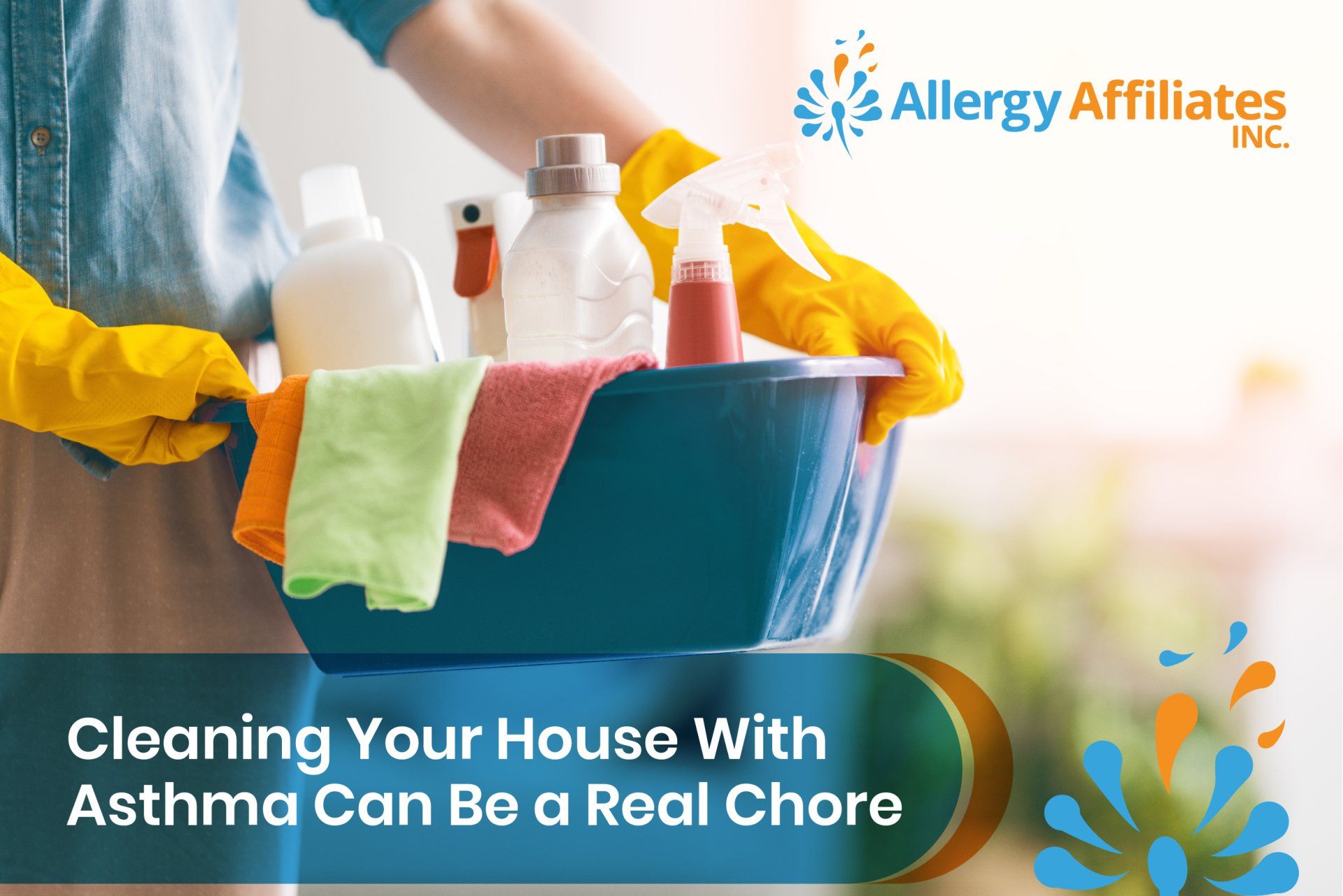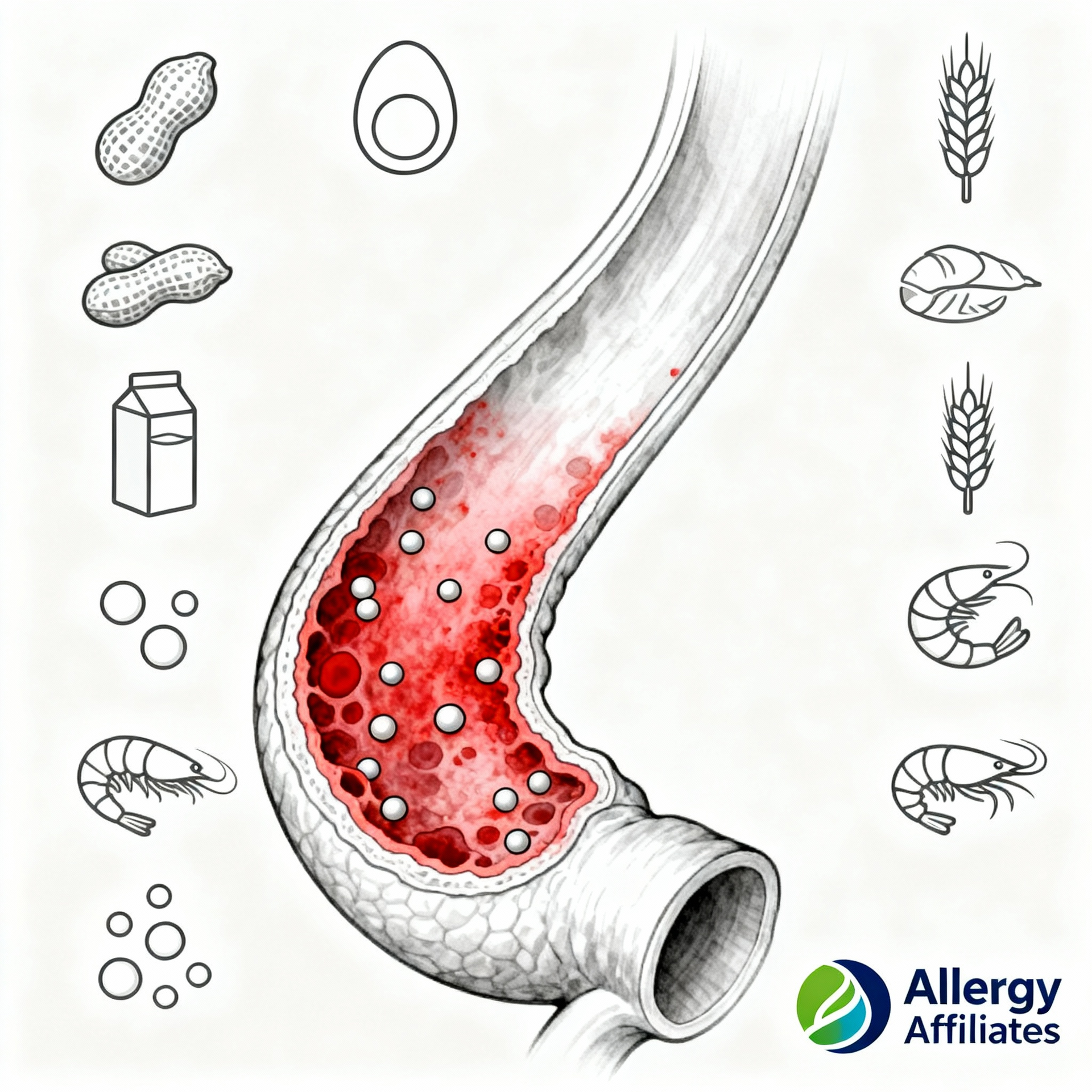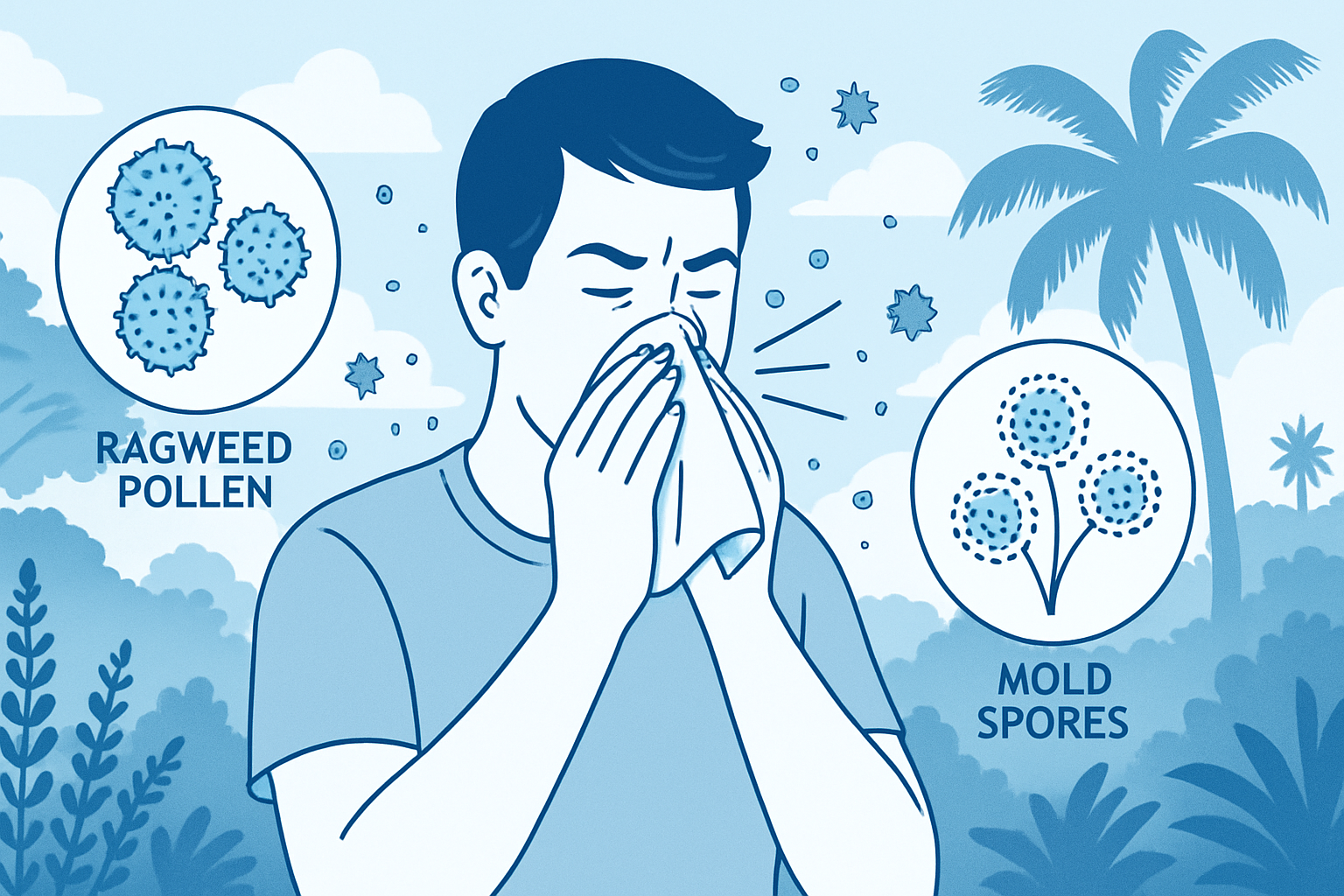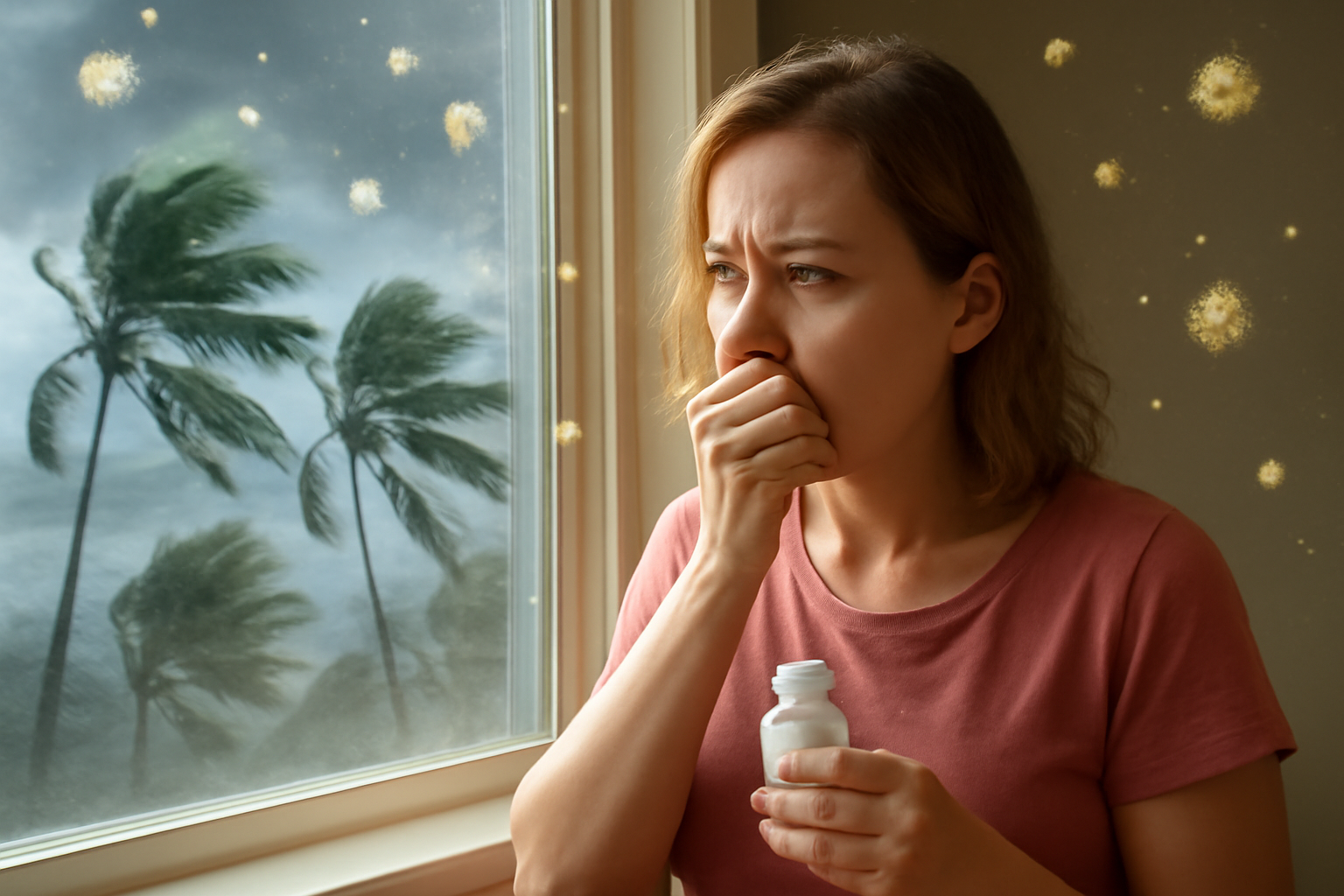
If you have asthma or allergies, keeping your home clean can improve your quality of life. However, proper cleaning can be a real chore. It's not just that cleaning takes time, but many common household products can irritate the airways and trigger an asthma attack. Although it's impossible to remove all of these substances from your home, you can take some precautions to make your house as asthma-friendly as possible.
This article will discuss the best ways to clean your house while managing asthma symptoms.
Six Asthma & Allergy Triggers in Our Homes
The first thing to do is figure out what's causing your symptoms. Household allergens are usually pretty common, and you might have more than one of these lurking in your home. They are typically found throughout your home, such as in the kitchen, bathroom, and living areas. Here's a list of the common allergens found inside our homes.
1.Dust Mites
Dust and asthma have always been linked. These mites cause allergic reactions for about 20 percent of people with asthma. For some people, dust mite allergies are the only reason they have asthma at all. For others, dust mites worsen their symptoms. These tiny microscopic bugs live off the dead skin cells we all shed every day. They prefers warm, humid conditions and are found in mattresses, pillows, drapes, carpets, upholstered furniture, and basically anywhere that skin cells collect.
2.Mold
Mold can trigger severe reactions in people with asthma or allergies. It thrives in damp environments and can grow on a wide range of surfaces, including wood floors and ceilings, carpets, and clothing. Mold produces spores that can enter our air and trigger asthma symptoms.
3.Pet Dander
Dander consists of flakes of skin or hair from animals with fur or feathers (including birds). And pet saliva can be an irritant, too. These flaky, tiny particles get into the air and can cause allergic reactions in sensitive individuals. There can be pet dander or pet fur wherever pets go - which could be the entire house, depending on whether they sleep on the furniture or your bed. In general, cat dander is worse than dog dander because it is smaller, lighter, and can stay airborne for a longer time.
4.Cockroaches
Cockroaches can trigger symptoms by leaving their droppings, saliva, and decomposing bodies around your home. Because they live almost anywhere, including cracks and crevices, cockroaches are hard to eliminate. Food-containing areas are particularly attractive to them. Regular pest control treatments and thorough cleaning can reduce exposure to cockroach allergens.
5.Pest Droppings
Cockroaches, mice, and rats, among others, leave droppings everywhere they go. Eventually, the droppings will break apart and release dust particles into the air. When inhaled, these dust particles can trigger asthma attacks. Furthermore, these droppings can harbor germs that cause illnesses, such as salmonella and E. coli. When cleaning them up, put on rubber or plastic gloves, and wash your hands thoroughly afterward.
6.Air Pollution
Poor air quality is a main cause of asthma among adults and children. According to the U.S. Environmental Protection Agency (EPA) , most people do not realize that indoor air pollution can be as bad as outdoor air pollution. We can get smoke from wood stoves, fireplaces, outdoor burning pits, gasoline vapors from cars, lawnmowers, and other equipment in our homes and backyards.
Tips for Cleaning
While you may not think of cleaning as an asthma trigger, the sprays, fumes, and dust created by cleaning can cause problems. Here are some ways to avoid asthma triggers when cleaning your home.
Choose flooring wisely
Avoid carpets if possible — hardwood, linoleum, and tile floors are best for people with asthma. Carpeting holds and traps dust mites, pet dander, and other allergens. If you have carpet, use washable rugs with rubber backings or area rugs that you can often wash instead of wall-to-wall carpet.
Vacuum using a HEPA filter
People living with asthma can use HEPA filtered vacuum cleaners and air purifiers to clean their homes safely. High-efficiency particulate air filters use technology that captures 99 percent of tiny particles like pollen and pet dander. They limit the release of particles into the air.
Get a HEPA Filter in your ventilation system
Install high-efficiency particulate air (HEPA) filters in your heating, ventilation, and air conditioning systems. The air filter removes mold spores and other contaminants from the air. It is recommended that you use air purifiers in each room where you spend the most time, such as your bedroom and living room.
If you don't have multiple machines, move them from room to room throughout the day so it has time to clean multiple areas of your home. Replace the air filters according to the manufacturer's instructions to maintain efficiency.
Make smart choices when it comes to cleaning products
Most cleaning products contain chemicals that release volatile organic compounds (VOCs) into the air. VOCs can harm the body in several ways, including dizziness, headaches, shortness of breath and nausea. Standard home cleaning products may also trigger an asthma attack in people with asthma.
The key is choosing and using the right products. Clean with all-natural cleaners or environmentally friendly products that don't contain chemicals to prevent asthma attacks. Use asthma safe disinfectant and allergy cleaning products. These typically have fewer chemicals (and less smell) than regular cleaners. Avoid the following cleaning products:
- Ammonia-based cleaners
- Chlorine bleach
- Disinfectants containing phenols
- Aerosol sprays
- Strong fragrance/scents
- Polishes and furniture waxes
Use a damp rag or mop
When you do clean your house, don't use a traditional broom. Dust regularly and thoroughly, using a damp cloth to grab dust rather than kick it up into the air. Try using an electrostatic cloth or a cleaning product that picks up dust instead of spreading it around your home when cleaning surfaces like hardwood floors.
Avoid using aerosol spray
Use a spray bottle and rags or paper towels instead of an aerosol cleaner for hard surfaces such as desks and countertops. Aerosols can release chemicals or droplets into the air that can trigger an attack. We recommend spray cleaners over powder ones.
Many asthmatics also suffer from allergies, so you may want to schedule your cleaning times when pollen counts are low.
Wash dishes by hand
If you have asthma, using a dishwasher can be a real problem. Researchers found dry cycles emit the most chemical vapors, producing a dense cloud of volatile organic compounds (VOCs). If you need to use a dishwasher, make sure it's ventilated well so steam can escape easily. In addition, dishwasher detergents contain a blend of strong chemicals intended to clean and sanitize dishes during the washing cycle.
Do away with dust-collecting items
The more dust you have around your home, the more likely you will have an asthma attack. To reduce dust inside your home, make sure to remove dust-collecting items like stuffed animals or throw pillows. Furthermore, you should avoid feather pillows and comforters since they collect dust and dander.
Invest in hypoallergenic covers
Cover your pillowcases, mattress, and box spring with special covers that keep dust mites and other allergens out. Check your covers periodically for tears or holes because tiny gaps will allow dust mites to get in. In addition, dust mites love warm, humid environments - so make sure yours is cool and dry. Once a week, wash bedding at 130 degrees Fahrenheit or higher to kill dust mites.
Ventilate your home while cleaning
Open windows and doors when you're cleaning. Let fresh air into your home while you're cleaning -- especially if you're using cleaners that may irritate you. This will help minimize the fumes in your space. You should also ventilate well after cleaning so that leftover fumes do not trigger asthma attacks.
Wear a respirator
Cleaning can stir up dust, pet dander, and other allergens that may cause your symptoms to worsen. By wearing a face mask, you can prevent these substances from entering your lungs. You can find N95 respirators at most hardware stores. This can help reduce the amount of dust and other particles that you inhale when you're cleaning.
Bathe pets weekly
By bathing your pet, you can reduce the amount of allergens on their skin. Don't bathe too often, though, or you could dry out their skin, which will increase allergens in the air. Talk with your doctor about how often to bathe your pet. If possible, brush your cat or dog outside and not inside.
Hire cleaning services
When asthma triggers are severe, and a deep clean is necessary, you can hire cleaning services. By doing so, you will not only avoid being exposed to harsh chemicals while cleaning, but you will also save time, allowing you to concentrate on what matters - your health.
Make Cleaning Easier & Safer!
Asthma can be a real pain when trying to clean your house, but it doesn't have to be a deal-breaker. If you know how to set up your cleaning routine and how to avoid common asthma triggers, you'll be able to clean your house efficiently and effectively. Reduce the number of asthma flare-ups and allergies when cleaning by following the tips we've outlined.
Check out the Allergy Affiliates blog for more asthma and allergy information!










